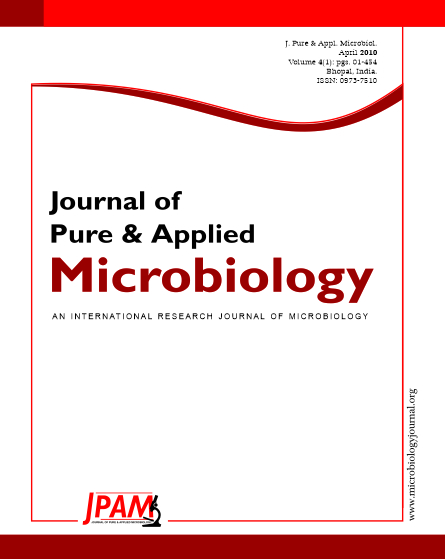The present study aims to isolate the five fungal strains (Aspergillus niger, Penicillium spp, Rhizopus spp, Trichoderma spp, Pleurotus spp) from the polluted soil of textile mill dyeing industry and these strains were used for decolourization of textile mill effluent. The various physico-chemical parameters of effluent such as temperature, pH, color, odour, clarity, electrical conductivity, hardness, alkalinity, chloride, sulphate, total solid, total dissolved solid and total suspended solid were analysed and the effluent was found to be highly polluted. Dye decolourization using the above fungal culture were studied under various conditions, Such as sterilized, unsterilized, effluent without any nutrients, effluent with ‘N’ source and effluent with minimal media (Free of Carbon source). Among the five isolates Pleurotus spp showed an effective decolourization than other four fungal cultures in all the conditions. Decolorization was effective in the condition of using minimal media.
Textile mill effluent, Dye decolourization, Fungal strains
© The Author(s) 2010. Open Access. This article is distributed under the terms of the Creative Commons Attribution 4.0 International License which permits unrestricted use, sharing, distribution, and reproduction in any medium, provided you give appropriate credit to the original author(s) and the source, provide a link to the Creative Commons license, and indicate if changes were made.


